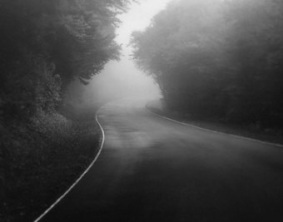The mysterious world of Dennis Wheatley…
David Fox explores
‘Should any of my readers incline to a serious study of the subject (Occult) and thus come into contact with a man or woman of Power, I feel that is is only right to urge them, most strongly, to refrain from being drawn into any practice of the Secret Art in any way.’
Dennis Wheatley (1897 – 1977) was one of the most prolific, widely-read, and successful authors of the twentieth century. Throughout his colourful career, Wheatley penned over 50 novels, a multitude of short stories, and produced a variety of non-fiction texts. His association with the British military is well documented, and he contributed to the war effort during the 1940s. Indeed, his involvement with the War Office, and the planning of the Allied invasion of northern France, would provided the basis for much of his future fictional work.
Wheatley’s character: Gregory Sallust (the protagonist of several of his best-selling thriller novels) is now regarded as a fore-runner to Ian Flemming’s James Bond. Both authors came from a similar background and naturally shared both the dominant values and world-view of their generation. These are evidently reflected within their works of fiction. However, despite only producing several novels of an Occult orientation, Dennis Wheatley has become synonymous with the supernatural and Black Magic. Why has a man who sold over 50 million books in his lifetime gained such a mysterious reputation?
‘In every age there have been secret societies, and the greater part of them have been brotherhoods concerned, to a greater or lesser degree, with magic.’
It could be said that Wheatley’s association with matters of a preternatural nature began during his time at prep-school in the early 1900s when he was convinced that he had seen a ghost. As he states in one of his works of non-fiction ‘The Devil and All His Works’ (Hutchinson 1971): ‘It has long been maintained by many thinkers of many nations that Homo Sapiens is endowed with a sixth sense.’ Clearly Wheatley appreciated that such matters resonate strongly within the collective consciousness of mankind, and in the 1930s he had the opportunity to draw upon this fascination to cement his reputation as a highly engaging and readable author.
‘The Devil Rides Out’ was published in 1934 and became an instant success. Wheatley’s inter-war readership were evidently mesmerised by the exotic themes of black magic, ritual, sacrifice and secret malevolent societies. Indeed, he always researched the background of every novel meticulously prior to producing a first draft. Notable occultists of this era such as Aleister Crowley, Rollo Ahmed and Montague Summers were all consulted by Wheatley on matters of the ‘Old Wisdom’.
‘None of us can hope to lead perfect lives. But, if we follow the Right-hand Path, we shall be armoured against the temptation to do evil.’
Wheatley’s detailed descriptions of occult ceremony, practice and philosophy within his novels have lead many to speculate whether or not he was a practitioner of the ancient arts himself. Although he denied ever having been involved with a secret society during his life-time, it is patently obvious that he possessed a profound understanding, appreciation and respect for the Occult. For example, ‘Strange Conflict’ (published in 1941) describes the curious ability of adepts to wage combat upon the astral plane against the backdrop of the Second World War.
Sceptics would of course scoff at Wheatley’s suggestions, but it must be borne in mind that many of the leading Nazis were deeply influenced by the dark arts. The so-called ‘Magical Battle of Britain’ has been discussed in Dion Fortune’s fascinating work of the same name. It should also be remembered that governments old and new (from King Saul’s dealings with the Witch of Endor in the Book of Samuel, to Queen Elizabeth’s reliance on the magick of John Dee, and Margaret Thatcher’s government’s consultation with astrologers prior to the Falklands Conflict) have called upon the powers of the unseen during times of national crisis.
‘Today the world is threatened with a new age of Darkness.’
A fitting testimony to the enduring appeal of Dennis Wheatley’s work is his perennially increasing cult following. His novels remain very popular, and the Hammer Horror productions of his Occult stories are much revered by Horror fanatics. Wheatley’s geo-political stance and seemingly unswerving loyalty to Queen and country may be antiquated and somewhat ridiculous to some, but there is much within his works of great value to contemporary readers and those who approach them with an open mind.
To find out more about the author David Fox, visit his website: David Fox Magician.











